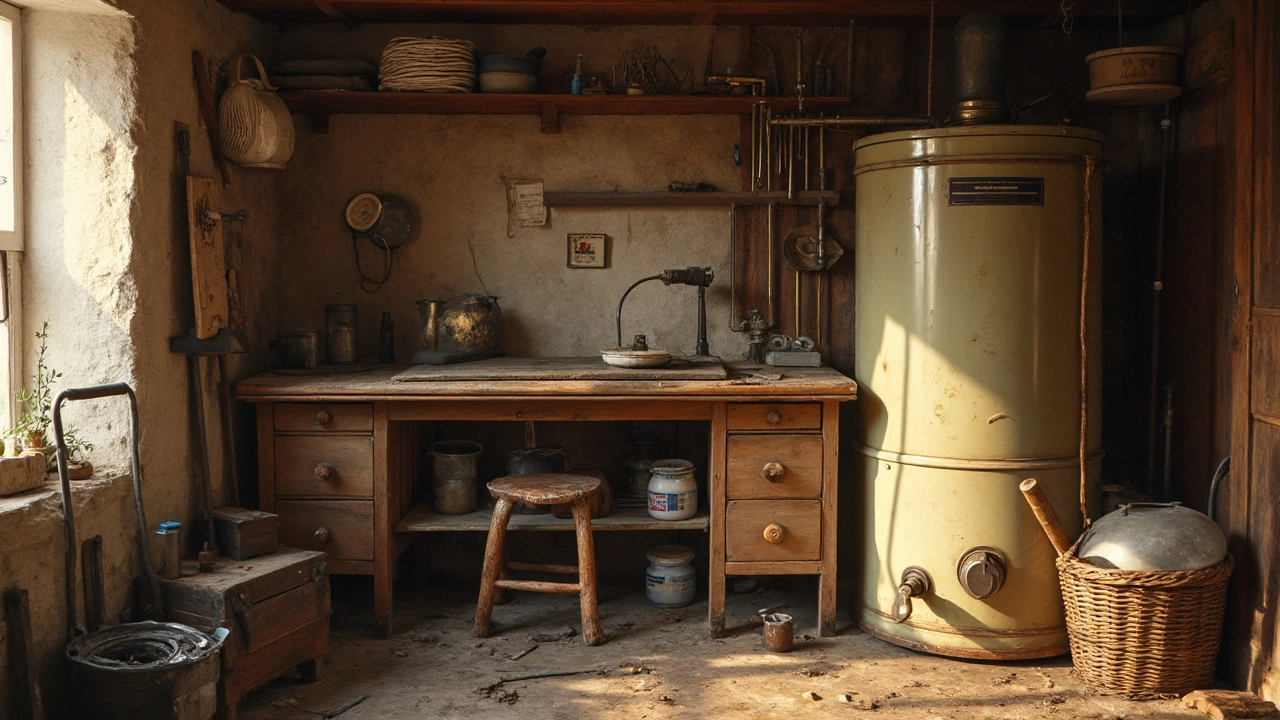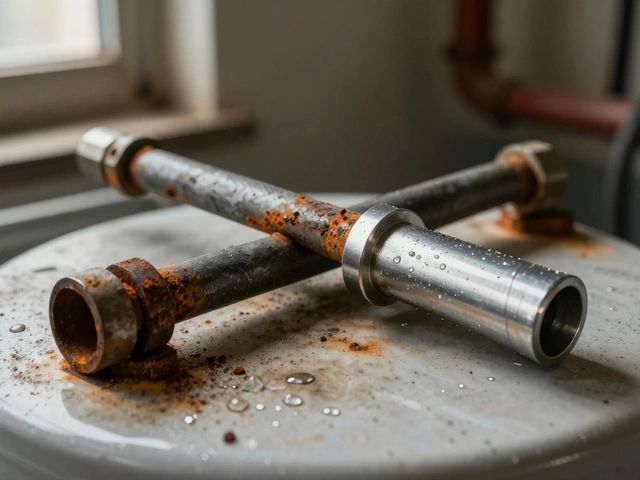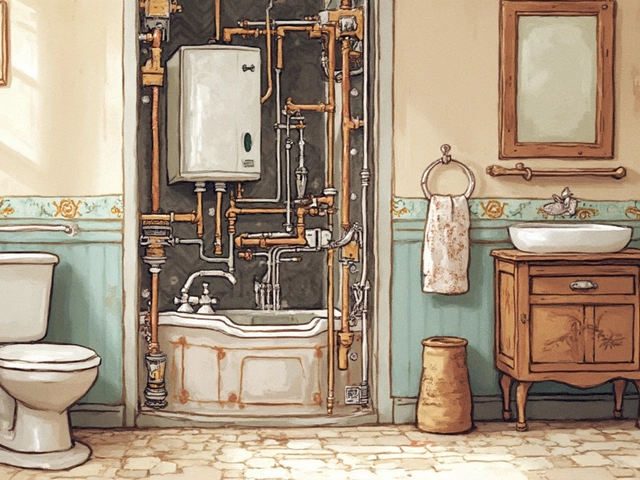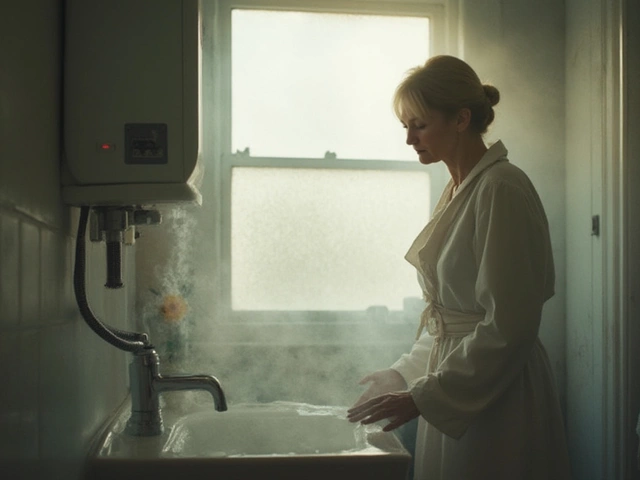Ever had the nasty surprise of a cold shower on a chilly morning? Chances are, an aging water heater might be the culprit. Knowing how long your water heater should last can save you from unexpected icy blasts and unwanted repair bills.
Typically, a standard tank water heater, the kind found in most homes, has a lifespan of 8 to 12 years. But that’s not set in stone; some factors can stretch this longevity while others might cut it short.
Curious about other types? Tankless water heaters, which are all the rage lately, can last even longer—up to 20 years if treated right. It's like giving your home the VIP treatment, ensuring hot water flows whenever you need it.
- Understanding Water Heater Lifespan
- Factors Affecting Lifespan
- Signs Your Water Heater Needs Replacement
- Tips for Extending Your Heater's Life
Understanding Water Heater Lifespan
Wondering how long your trusty water heater is going to stick around? Understanding the water heater lifespan is crucial for planning when it might be time to consider a replacement or start saving up for one. On average, a standard tank water heater, which is the typical choice for many homes, tends to last between 8 to 12 years. However, if you’ve got a tankless version, you're in luck as these can keep going strong for up to 20 years.
Now, why do these differences exist? Tank heaters suffer from wear and tear due to the metal tank being in constant contact with water. Over time, corrosion can set in, especially if maintenance wasn’t consistent. Tankless models, though they have their quirks, generally avoid this issue since they heat water on demand rather than storing it.
According to the U.S. Department of Energy: "Proper maintenance can significantly extend the life of your water heater, ensuring it runs efficiently throughout its lifespan."
Here's a handy comparison to visualize the general lifespan you can expect:
| Type of Water Heater | Average Lifespan |
|---|---|
| Standard Tank | 8-12 years |
| Tankless | 15-20 years |
There are always exceptions, of course. If your water heater isn't performing as expected even within its typical lifespan, it might be due to factors beyond just age, like local water quality, installation issues, or lapses in regular maintenance.
Factors Affecting Lifespan
So, what determines how long your water heater sticks around? Well, it’s a mix of where you live, how you use it, and how well you take care of it.
First up, water quality is a biggie. Hard water can cause mineral buildup that clogs your heater and chips away at its efficiency. So if your area is known for hard water, consider installing a water softener to give your heater a fighting chance.
Then there’s maintenance, or lack thereof. It’s like your car; skip the oil changes, and you’re asking for trouble. For water heaters, yearly maintenance like flushing the tank to remove sediment buildup can add years to its lifespan. It doesn’t take much time but can spell all the difference in the world.
Now, think about usage patterns. If your family of five uses the heater a ton for showers and laundry, it’s working overtime compared to a single-person household. More usage generally means the heater will wear out quicker, but regular check-ups can help balance that out.
Don’t forget installation quality. If it was installed by your neighbor’s cousin instead of a pro, there might be a few short years before issues crop up. Professional installation might hit your wallet upfront but is a smart long-term investment.
Finally, we have the type of heater. Electric, gas, tank, or tankless—each has its quirks. For example, gas heaters may have a slightly shorter life but might save on energy costs. Check the manufacturer’s warranty; it often hints at what you can realistically expect.
| Lifespan by Heater Type | Average Years |
|---|---|
| Standard Tank | 8-12 |
| Tankless | 20+ |
| Gas Boiler | 10-15 |
In the end, staying in the know and treating your water heater right isn’t just about keeping it running. It’s about ensuring that after a long day, you have a nice, hot shower waiting for you.
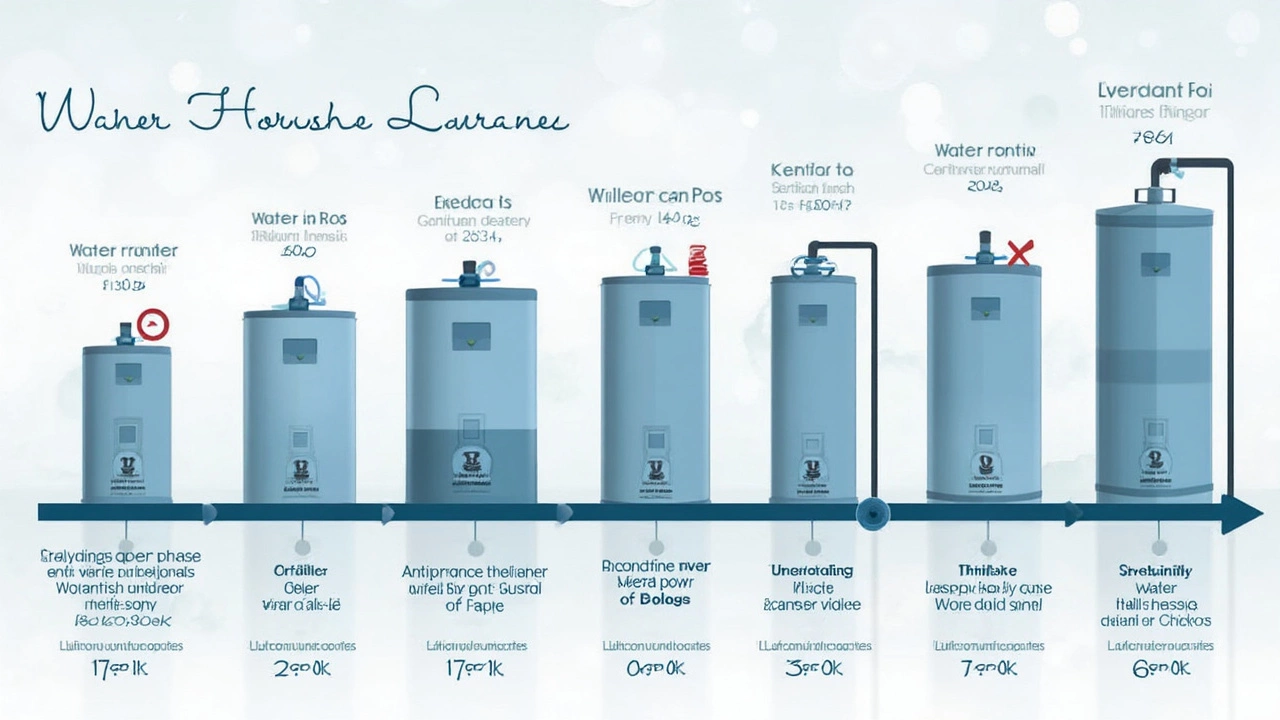
Signs Your Water Heater Needs Replacement
Replacing your water heater before it completely fails can save you from icy showers and costly water damage. But how do you know when it's time to say goodbye to your old faithful heater?
First up, age is a big clue. If your tank water heater is hitting the 10-year mark, it’s time to start thinking about a replacement. Even if it looks fine from the outside, the inner workings might be on their last legs.
Next, pay attention to the noise level. A water heater that clunks, bangs, or makes other alarming sounds is trying to get your attention. That noise often signals sediment buildup or parts that are wearing out, both of which are signs you might need to consider getting a new unit
Take a close look at the color of the water, too. Rusty water isn’t just a bummer; it’s also a sign your tank may be corroding on the inside. And once rust starts, there's no easy fix.
Then there’s the water itself—or lack of it. If your hot water's not lasting as long as it used to or isn’t getting as hot, there's a good chance the heating element is shot or sediment is cutting the capacity of your tank.
A leaking tank is a dead giveaway. If you notice pooling around your water heater or dripping from the tank, it's time for a replacement. This can be a serious issue, leading to water damage in your home.
- Age: Consider replacement if your unit is over 10 years old.
- Noises: Persistent rumbling suggests internal issues.
- Water Quality: Rusty or murky water indicates corrosion.
- Water Temperature: Cold showers might mean a failing element.
- Leaks: Visible leaks mean the tank is compromised.
Spot any of these signs? It might be time to talk to a water heater repair specialist, ensuring you're not left high and dry—literally.
Tips for Extending Your Heater's Life
Want to keep your water heater repair woes at bay? A little maintenance goes a long way in stretching its lifespan. Regular care and a few easy tweaks can spare you the trouble of unexpected cold showers and costly repairs.
First up, flush your tank annually. This might sound daunting, but it’s super important. Sediment buildup is the enemy, reducing your heater’s efficiency. If doing it yourself feels like too much, calling in a plumber once a year is well worth it.
Don’t forget to test the pressure relief valve. It should be done annually to ensure your heater doesn't become a pressure cooker. Safety first, right?
"Extending the life of your water heater by just a couple of years can save homeowners significant costs," says James Mitchell, a seasoned plumber with over 30 years of experience.
Also, keep an eye on the thermostat. Setting it to around 120 degrees Fahrenheit not only prevents burns but also reduces the strain on the heater, saving you energy and money over time.
- Flush the tank once a year to remove sediment.
- Test the pressure relief valve annually.
- Keep the thermostat at 120°F for efficiency.
- Inspect the anode rod every few years and replace if needed.
A pro tip: Check the anode rod every three years. This little rod sacrifices itself to prevent rust inside the tank. If it's worn out, replace it!
Lastly, a quick visual inspection now and then can be a game-changer. Leaks, rust spots, or any signs of wear and tear mean it might be time to call in a pro.
By following these simple steps, you can extend the life of your heater and keep those steaming showers coming.

